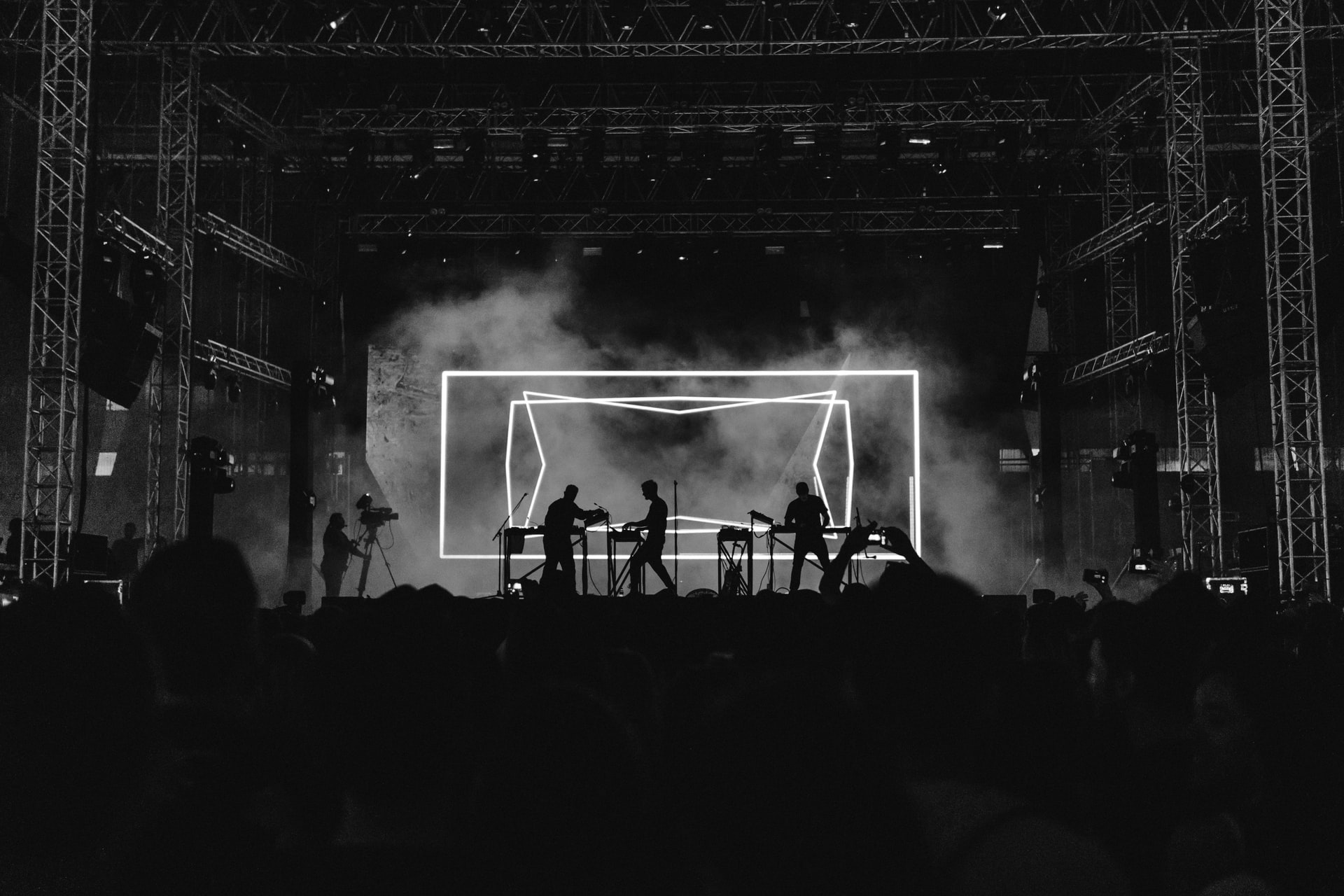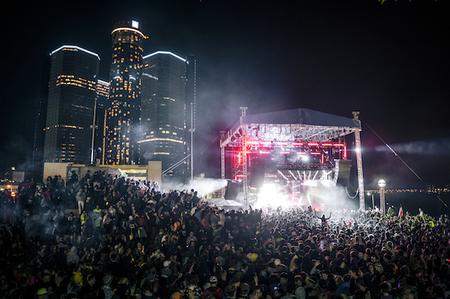When Live Concerts Return, They Won’t Be The Same
Facing massive economic fallout, small music venues around the United States are starting to explore how they can reopen safely and asking politicians for support tailored to their industry.

Earlier this week, Missouri Governor Mike Parson laid out a plan that would allow live concerts to resume in his state, as long as concert promoters and music venues followed social distancing guidelines.
St. Louis Mayor Lyda Krewson pushed back against the plan, saying that the city would continue to follow stay-at-home orders and that the largest metropolitan area in Missouri will be guided “by data, not dates.”
Politicians in Los Angeles have said they don’t expect concerts to resume until next year.
“The music business is fragile during normal times — especially the independent world.” — Dan McGowan, owner of music venue The Crofoot
Listen: L.A. Times reporter August Brown and music venue owner Dan McGowan discuss the implications of COVID-19 on music venues
So, when will live concerts return to the state of Michigan? And even if live events return, will fans be ready to pack music venues and arenas in the age of COVID-19?
There’s currently no timeline for returning live entertainment to the Mitten State.
But as each state’s approach to COVID-19 differs, many independent music venues around the country are barely getting by with nothing to offer their customers.
“We’re facing an existential crisis,” says Dan McGowan, who owns the indie music venue The Crofoot in Pontiac. McGowan says his venue hosts an average of 750 events a year from weddings to concerts and festivals.
“The music business is fragile during normal times,” says McGowan.

Concert industry economically devasted by pandemic
Since the spread of COVID-19 and the stay-at-home orders that followed, the economic toll on small businesses in the entertainment industry has been devastating.
According to trade publication Pollstar, the concert industry alone could lose an estimated $9-billion this year.
McGowan says his music venue and many others around the United States are starting to look ahead to how they could safely reopen — and calling on politicians for financial support in the meantime.
McGowan recently penned a letter to U.S. Senator Debbie Stabenow of Michigan on behalf of the National Independent Venue Association (NIVA) — a recently formed advocacy group made up of 1,200 venues and promoters from around the country.
Like many other small businesses facing challenges from COVID-19, NIVA is arguing that initial relief bills from Congress weren’t designed to benefit their businesses.
“This is an extinction-level event for a lot of venues unless something changes.” — August Brown, Los Angeles Times
“We need live music to survive,” says McGowan. “We’re asking for lawmakers to consider our industry and similar industries that will be closed for the foreseeable future. We need the stimulus packages that have been passed to be altered to help us because the Paycheck Protection Program doesn’t work for our industry.”
August Brown is a reporter who covers pop music, the music industry and nightlife policy for the Los Angeles Times.
For a major American music hub like L.A., he says live concerts are likely the last thing to return to normalcy under California Governor Gavin Newsom’s plan to reopen the state.
“[The governor] said it wasn’t going to be an option until some form of therapeutic treatment for COVID-19 — which could be a vaccine or some other option — was available,” says Brown. “It’s clear that live music is going to be last in line for the parts of the world that reopen. This is an extinction-level event for a lot of venues unless something changes.”
Rethinking the future of venues
When considering the future of venue spaces, ideas are circulating in regards to the look and feel of the consumer and venue experience.
Brown and McGowan both reference drive-in movie theaters as being prime targets for reformatted live concerts with performers on stage and speakers piping the sound directly into the cars of fans. An artist in Denmark recently performed a sold-out show at a drive-in theater.
CultureShift listener Michael in Canton suggested a pay-per-view concert route.
“I think people will pay. I know people love music,” says Michael. “What we’re facing today is not something positive, but music always brings your spirits up. I don’t have a problem sitting at my home and watching it on my phone or computer and having a group in your venue with nobody there, like a Zoom or pay-per-view concert. They pay millions of dollars to watch people beat each other up in the ring, why wouldn’t they pay to listen to good music?”
In the midst of the unknown, McGowan is keeping a positive attitude.
“The in-venue experience is going to be difficult but not impossible,” says McGowan. “I know that there are smart people out there working every day to solve this crisis and to find a cure. We’re going to overcome this.
Trusted, accurate, up-to-date
WDET is here to keep you informed on essential information, news and resources related to COVID-19.
This is a stressful, insecure time for many. So it’s more important than ever for you, our listeners and readers, who are able to donate to keep supporting WDET’s mission. Please make a gift today.
